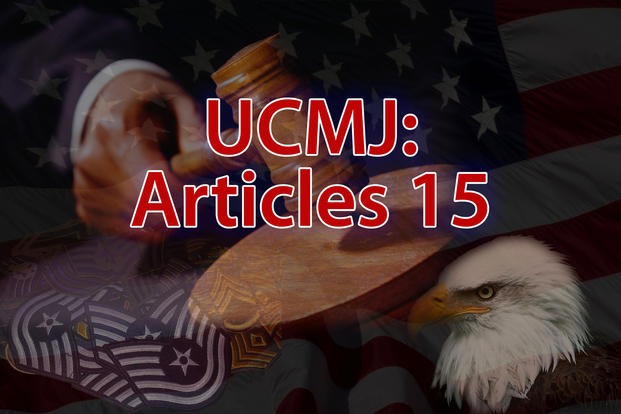Non-Judicial Punishment (NJP) is known by different terms among the services, such as "Article 15," "Office Hours," or "Captain's Mast." The purpose of NJP is to discipline service members for minor offenses such as reporting late for duty, petty theft, destroying government property, sleeping on watch, providing false information, and disobeying standing orders.
For more serious offenses, a court martial is usually held.
The Commanding Officer usually acts as the judge and jury in NJP proceedings. The purpose of NJP is to punish wrongdoing that could have detrimental effects on a military unit's performance, or minor offenses under the Uniform Code of Military Justice (UCMJ).
The punishments meted out for an NJP offense are limited to confinement on diminished rations, restriction to certain specified areas, such as not being allowed to leave a ship or base, arrest in quarters, correctional custody, extra duties, forfeiture of pay, detention of pay and reduction in grade.
Before facing a commander in NJP, an accused is formally notified of their rights and responsibilities under the Uniform Code of Military Justice (UCMJ). This includes:
- written notification that NJP is being considered;
- a description of the alleged offenses;
- a summary of the evidence upon which the allegations are based;
- notification of any rights the accused has.
Except for individuals attached to or embarked on a vessel, service members have the right to refuse nonjudicial punishment. Usually, refusing an NJP will result in the case being moved to a court martial, which can result in a more serious sentence.
An accused has the right to a personal appearance before the officer imposing punishment, they can refuse to testify if they wish and to bring witnesses on their behalf. They will be notified, in writing, of the charges against them. They can request the proceedings are open to the public, however many commanders will often hold these hearings in public or invite interested parties to attend as they see fit.
The accused may appeal the imposition or results of nonjudicial punishment if they wish. The appeal must be made to the Commanding Officer's next senior level officer via the Judge Advocate General's (JAG) office.
Know All Your Legal Rights and Benefits
Be aware and get what you are entitled to. Keep up with all the legal benefits available to you as a service member, veteran or spouse and get updates delivered straight to your inbox by subscribing to Military.com..












